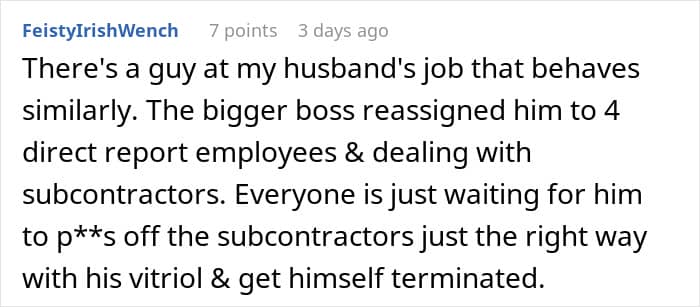While it’s important for managers and bosses to make sure tasks are getting done on time and correctly, the truth is that many are just downright cruel and prefer to abuse their power over actually leading people. But every now and then, an enterprising employee can find a way to get back at them.
A netizen shared how they got back at a horrible boss who had it out for them by simply keeping track of what he did. We reached out to the person who shared the story online via private message and will update the article when they get back to us.
RELATED:Your boss hating you can make for a pretty hostile working environment

So one netizen decided to plan ahead for how to deal with it
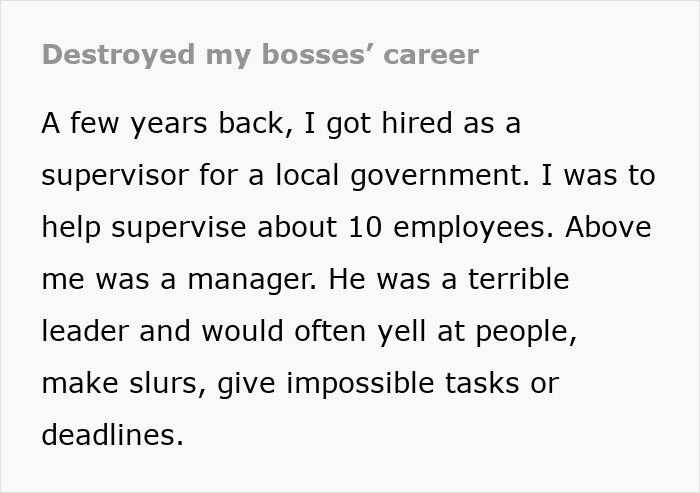
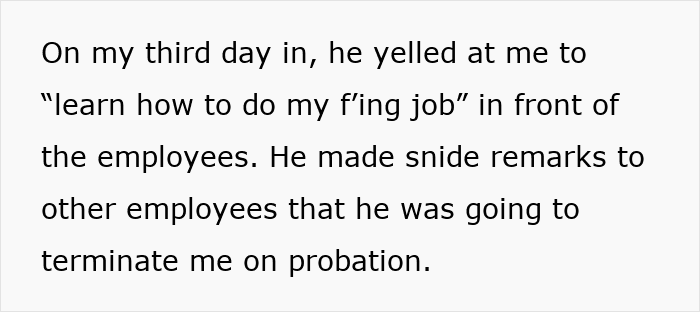

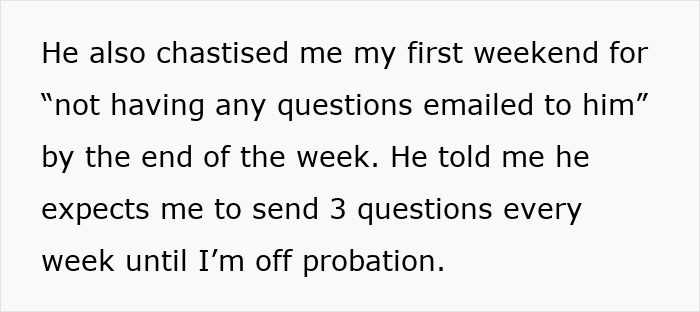


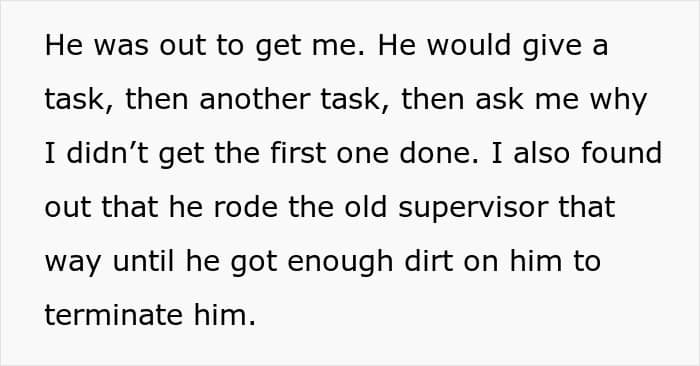
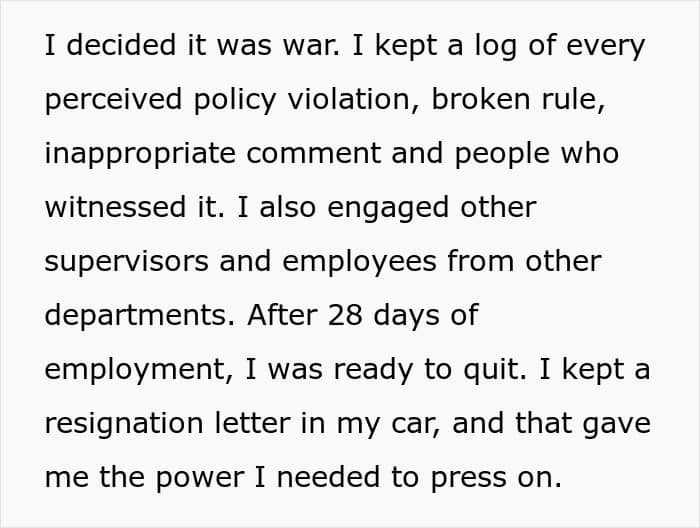
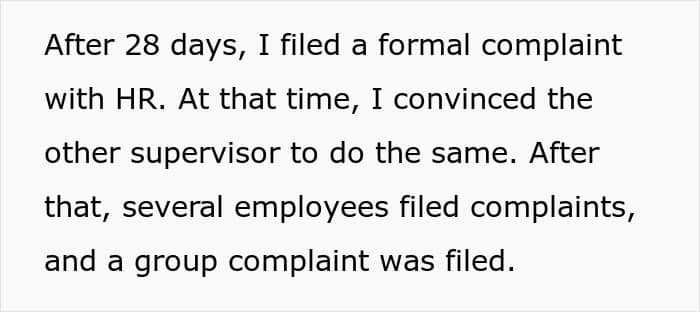
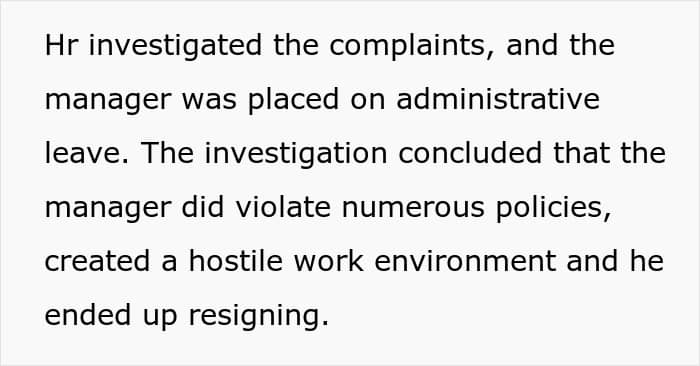
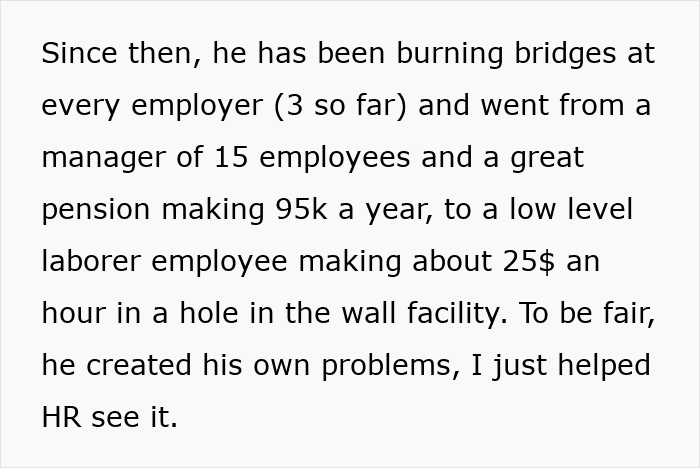

Some folks end up promoted upwards without any thought to their actual skills
Some managers and bosses end up incompetent and rude because they’ve been promoted into leadership roles without the right skills to manage people or projects. High performers in technical or sales positions are often rewarded for individual success, not teamwork or empathy. When that star salesperson or top engineer is suddenly tasked with leading a team, they may lack training in communication, conflict resolution, and motivation, skills that aren’t measured on quarterly reports. Without those foundational management competencies, they struggle to guide their teams effectively, defaulting to brusque directives rather than thoughtful coaching.
Insecurity and ego also play a big part. A manager who feels unprepared or threatened by the talent around them may resort to aggression or dismissiveness to assert authority. By belittling suggestions or cutting off questions, they hope to keep control and mask their own uncertainties. Unfortunately, this approach erodes trust and stifles creativity, as team members learn it’s safer to keep their heads down than to speak up with new ideas or concerns.
Workplace culture and poor example-setting can reinforce incompetence and rudeness. If senior leaders tolerate or reward abrasive behavior, viewing it as “tough love” or “just business”, then rudeness becomes normalized at every level. Managers mirror what they see at the top, believing that barking orders or publicly criticizing mistakes demonstrates strength. In reality, it perpetuates a cycle of disrespect that chokes morale and productivity.

Certain organizations even foster a certain kind of toxic environment
Chronic stress and unreasonable expectations exacerbate the problem. When bosses are overloaded with targets, budget cuts, or back-to-back crises, their patience wears thin. Exhaustion can turn even well-intentioned leaders into curt, short-tempered versions of themselves. Without proper support, realistic goals, administrative help, or mental health resources, they lose sight of the human element in management and treat people like interchangeable cogs in the machine. The result can be, like this story shows, workers who just take matters into their own hands.
Finally, some individuals simply lack self-awareness. They’re disconnected from the impact of their words and actions, viewing abruptness as efficiency rather than rudeness. They may have never received honest feedback about their behavior, perhaps because their own managers avoid conflict, or because their teams have learned to “game” the system by staying silent. Without reflection or constructive criticism, these bosses remain blind to the damage they inflict.
Addressing incompetent, rude management requires change on multiple fronts: selecting leaders for people skills as well as technical ability; training and mentoring new managers; fostering a culture of respect from the top down; and building feedback loops that hold everyone accountable for how they treat colleagues. With those elements in place, organizations can replace fear and frustration with genuine collaboration, and turn lousy bosses into authentic leaders.

The employee gave some more info in the comments


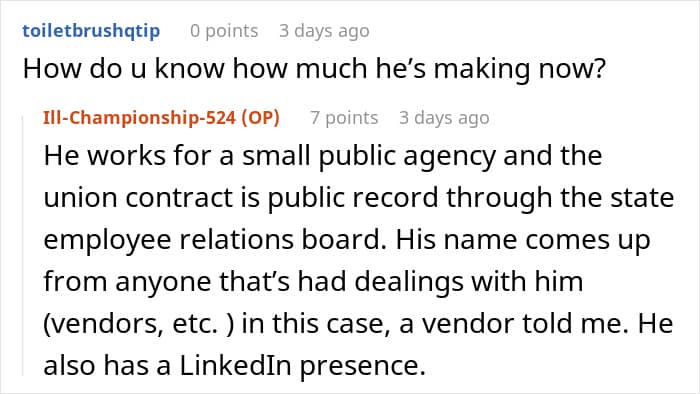
Most thought the boss got what he deserved
















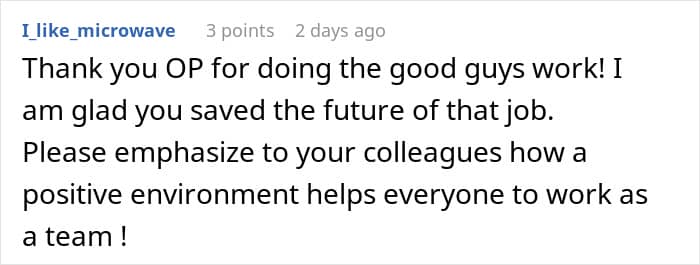

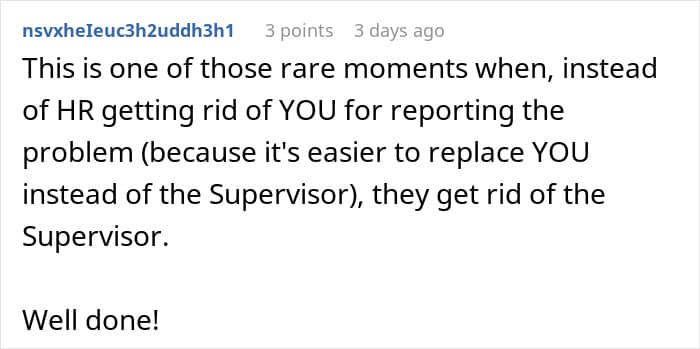
Some shared similar stories

